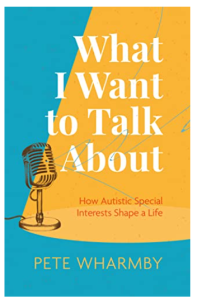These are interests and activities that the person finds fascinating or compelling, that they love to spend time learning about, thinking about or doing.
Take a look at Chris Memmott’s Roundabout Theory which gives a very plausible explanation for what is going on inside an autistic brain. Click here to access the Roundabout Theory
In a nutshell, he’s saying that autistic brains are specialist – and neurotypical brains are generalist.
If autistic children are encouraged to take part in their special interests in school, there can be all sorts of benefits. Opportunities to engage in special interests can be made in lessons, at break and lunch times, during mentoring sessions or in after school activities.
- For example, an English teacher could choose a text to study on the topic of the special interest, helping a struggling or unmotivated student to gain some confidence and enthusiasm
- A child who is socially anxious or has friendship problems might gain good practise in socialising at a lunch club linked to their special interests
- Or they may prefer to talk to a teacher who shows some curiosity in their interests
Autistic people often develop great skills and knowledge in their special interests – which can then turn into successful careers. TV personalities Chris Packham, Anne Hegarty and Guy Martin are great examples of this.
When involved in these interests, the person can find themselves in a ‘flow state’ – getting so absorbed, that it is all they focus on (sometimes called ‘hyper-focusing’). When in a flow state, the person can find it easier to block out other information such as worries or distractions.
Special interests can foster self-confidence and can help with emotional regulation. This can help autistic children feel more comfortable at school and lead to better learning outcomes.
Here’s a great Spectrum News Article on the positive values of special interests:
Click here to go to the Spectrum News Article
In his excellent book ‘What I want to Talk About – How Autistic Special Interests Shape a Life’, Pete Wharmby (autistic speaker, writer and former teacher) also looks at this. The book also helps people to understand autistic thinking in general. Click here for a link to his webpage

For information on how special interests can help autistic children in school click this link


